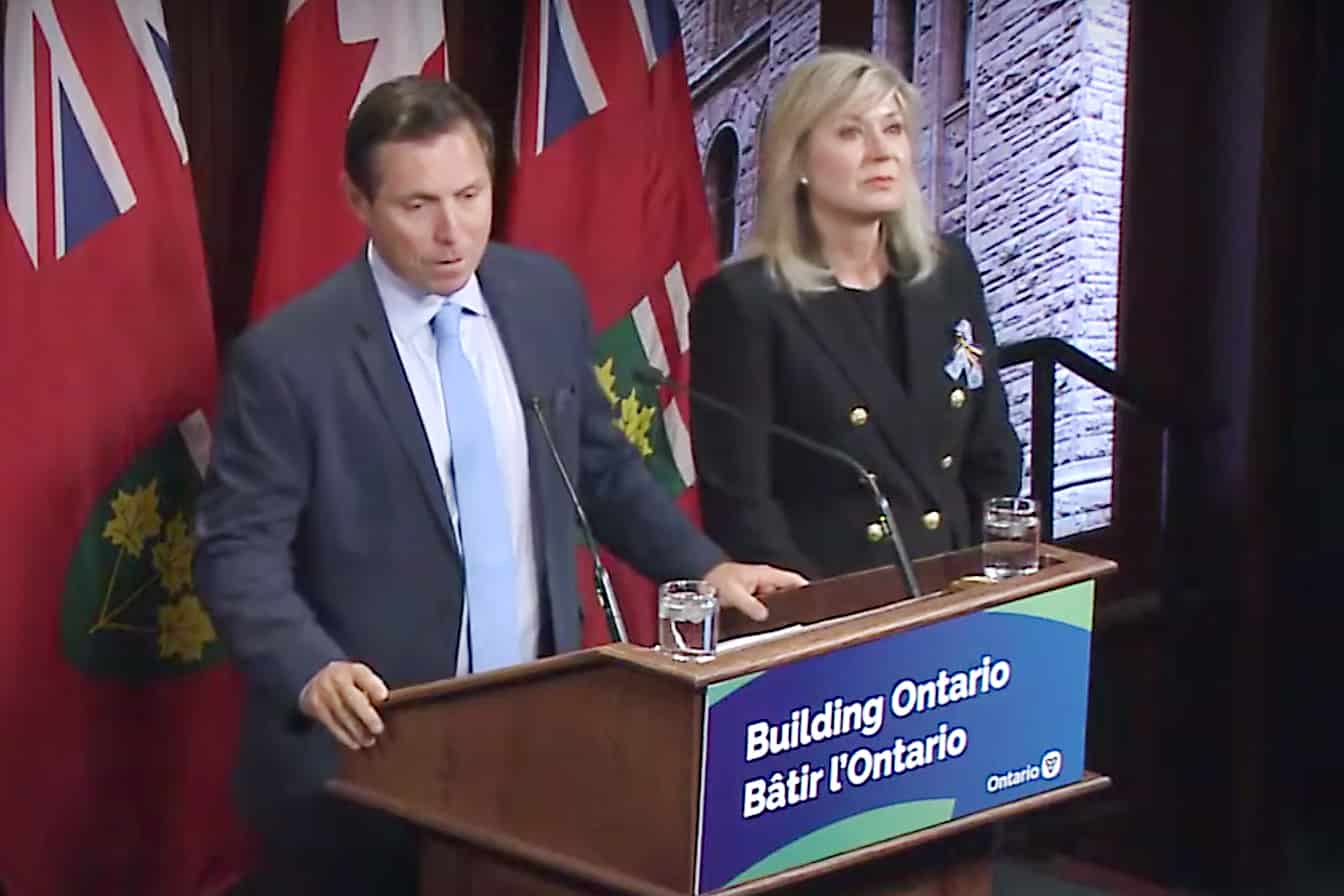20 YEARS AGO: Mississauga made big push for Peel split; sound familiar?
Published July 20, 2024 at 3:28 pm

As they prepared late last year to celebrate Mississauga’s impending 50th birthday, those who run the city came closer than any of their predecessors ever did to gifting the municipality what it has wanted most for decades — political independence from the Region of Peel.
In fact, for a few short months in 2023, Mississauga was on the fast (and official) path to cutting political ties with siblings Brampton and Caledon, and the umbrella Peel municipality, after having been given the go-ahead by the provincial government.
It was set to be the perfect gift to mark Mississauga’s 50th anniversary as a city, which is being celebrated throughout 2024.
Ontario Premier Doug Ford was at the helm when the province announced the passing last summer of the Hazel McCallion Act, which put into legislation (at least for the time being) that the dissolution of Peel would take effect Jan. 1, 2025.
Independence finally appeared to be in the cards
After decades of pushing for independence that included several concerted efforts, one in particular 20 years ago in 2004, city decision-makers were on the verge of finally securing for Canada’s seventh-largest city what had been its nearly lifelong wish.
The official stamp of approval was in place and it was only a matter of working out divorce details — and waiting a year or so — before Mississauga’s new, independent reality took hold.
But not so fast. What seemed to have been the fulfillment of a deathbed promise made by Ford to McCallion — the city’s late political icon had aggressively pushed for a Peel split for decades — turned out to be a political “gotcha,” a hoodwink that infuriated city officials when they learned last December the province had reversed course on its earlier decision.
On Dec. 13, the province announced its intention to backtrack on its earlier move to dissolve the Region of Peel and have the three member municipalities go their separate ways.

Brampton Mayor Patrick Brown and former Mississauga mayor Bonnie Crombie disagreed from the outset on Peel dissolution.
Then-Mississauga mayor Bonnie Crombie immediately accused Queen’s Park of caving to “scare tactics and fear mongering” from Brampton Mayor Patrick Brown. She was convinced Brown’s repeated and “unfounded” public assertions that a Peel breakup would cost taxpayers $1.3 billion over 10 years had much to do with the province backing out of the Peel dissolution deal.
Whatever pushed Ford and the province to reconsider their earlier decision, the Mississauga dream of independence had once again been thwarted.
It was made official in February when Ontario’s legislature resumed session and revoked the Hazel McCallion Act.
A 2004 effort to go it alone also failed
Still, Crombie, now leader of the Ontario Liberal Party, expressed a degree of optimism that Mississauga would eventually get its independence wish.
“This isn’t the end of our path to independence; it’s simply a bump in the road,” she said at the time.
Twenty years ago, in 2004, McCallion spearheaded an aggressive attempt by municipal politicians in Mississauga to leave Peel in its rearview mirror once and for all.
The renewed attempt to become a standalone city was strongly supported by all Mississauga councillors of the day, who eagerly lined up behind McCallion to fight the political fight with both the Region of Peel and the province.
A Mississauga task force in 2003 tabled a report that laid out the disadvantages — chief among them a representational downside at regional council — the city faced and called on Queen’s Park to take action and let the city go it alone.
A follow-up report in 2004 addressed Mississauga’s concerns related to the property tax impact being part of the Region of Peel had on city residents.
The go-it-alone effort, while organized and aggressive, failed as had previous pushes for independence.
INsauga's Editorial Standards and Policies


